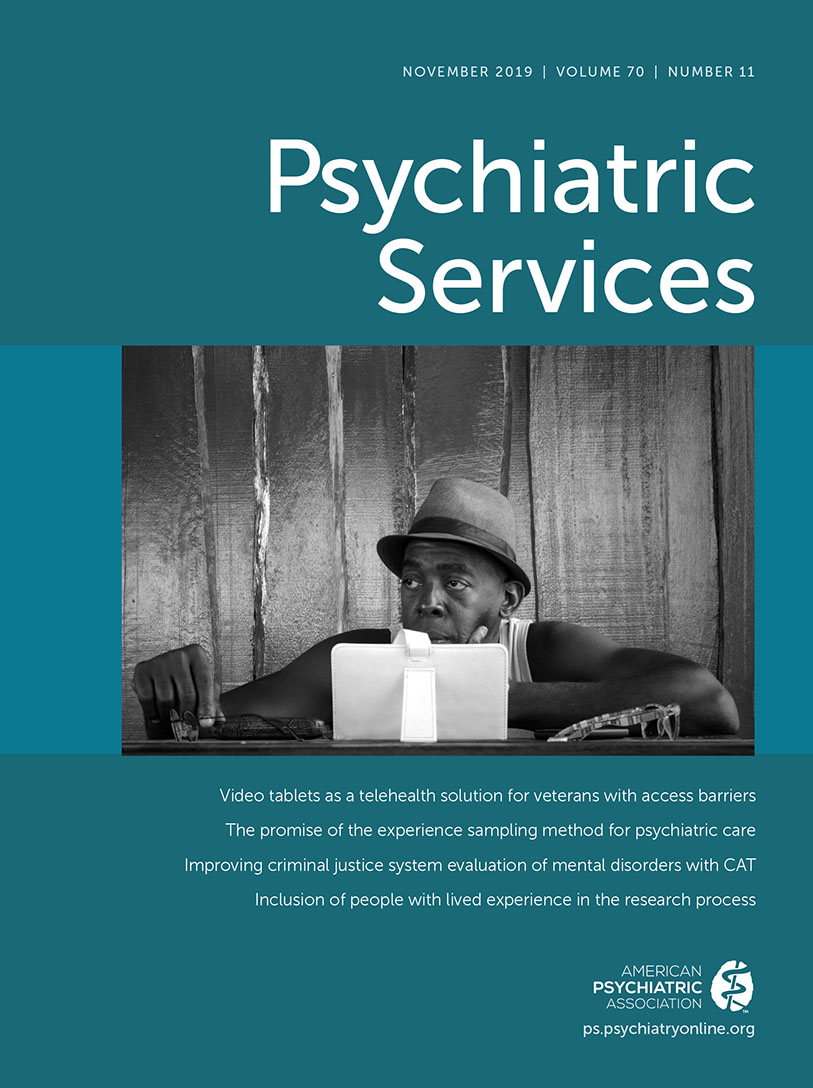Perinatal Mental Health in Community Psychiatry: A Reproductive Psychiatry eConsult Pilot Project
TO THE EDITOR: Community psychiatrists face a challenging question when women they serve are pregnant or breastfeeding: what to do about psychotropic medication? Women with serious mental illness frequently depend on psychopharmacology for stability and safety, yet concerns about risks to the developing fetus are often perceived as putting the mother’s and the child’s health at odds (1). Therefore, many community psychiatrists worry about liability, are unsure how to proceed, and are sometimes even reluctant to treat perinatal women (2).
To address this problem in Los Angeles County’s (LAC’s) safety net system, we launched the Reproductive Psychiatry eConsult Pilot Project. Our project sought to enhance the capacity of Department of Mental Health (DMH) psychiatrists to appropriately manage treatment of perinatal patients with serious mental illness. We recruited six DMH clinics for targeted reproductive psychiatry training paired with ongoing access to a reproductive psychiatric consultant via eConsult. The eConsult system is a Web-based platform for asynchronous, HIPAA-compliant, provider-to-provider communication and referral.
Our findings demonstrated the value of reproductive psychiatry training. The 2-hour training session focused on the specifics of diagnosis, prescribing guidelines, and risks and benefits of using medications from different psychotropic classes for pregnant and breastfeeding women, and it provided basic information about how to use the eConsult system. We trained 59 DMH psychiatrists in summer 2017 and 51 in autumn 2018. Pre- and posttraining surveys were administered to providers who attended both training sessions. Comfort in prescribing antidepressants increased significantly, from a mean of 3.04 to 3.59 on a scale of 1, very low, to 5, very high (p<.05), and comfort in use of mood stabilizers and antipsychotics increased from 2.64 to 3.04 (p<.05). The likelihood of advising a pregnant or nursing woman to stop medication decreased from 29% to 11% (p<.05). Concerns about harming the fetus or baby decreased from a mean of 2.93 to 2.11 on a scale of 1, very low, to 5, very high (p<.10), and hesitancy to take on responsibility of perinatal women’s mental health care dropped from 2.36 to 1.71 (p<.10).
Uptake and usage of LAC’s eConsult platform proved more challenging. We obtained qualitative data on these challenges from open-ended pre- and postpilot interviews, facilitated by an independent evaluator, which were then coded and organized by theme. Using this method, we learned that many psychiatrists found the eConsult platform cumbersome and difficult to access. For example, eConsult requires a log-in process separate from DMH’s electronic health record (EHR) and has several pages of required data, adding significant time to administrative workflow. Other barriers to eConsult uptake resulted from more systemic issues, such as the lack of integration with existing EHRs across Los Angeles, limited organizational support, and a lack of incentives (such as carved out clinic time or financial reward per usage) for psychiatrists to utilize the system. Taken together, these barriers led psychiatrists to prefer using a phone consultation line or online resources, rather than eConsult, to support their clinical care.
Our findings are particularly relevant as addressing maternal mental disorders gains traction at the policy level. Mathematica Policy Group determined that untreated perinatal depression for all births in 2017 cost $14.2 billion nationwide (3). Also, a telephone consultation line providing reproductive psychiatry support has proven acceptable and scalable in Massachusetts (4) and is launching in other states. Our Reproductive Psychiatry eConsult Pilot Project supports the premise that with training and ongoing support, community psychiatrists can increase their capacity and confidence to treat perinatal women who have a serious mental illness. Technology that is easy to access, efficient, and allows medical information to be shared is essential to utilization and successful consultation support.
1 : A systematized review of atypical antipsychotics in pregnant women: balancing between risks of untreated illness and risks of drug-related adverse effects. J Clin Psychiatry 2017; 78:e477–e489Crossref, Medline, Google Scholar
2 : What happens to mental health treatment during pregnancy? Women’s experience with prescribing providers. Psychiatr Q 2014; 85:349–355Crossref, Medline, Google Scholar
3 : Societal Costs of Untreated Perinatal Mood and Anxiety Disorders in the United States. Cambridge, MA, Mathematica, April 2019. https://www.mathematica-mpr.com/our-publications-and-findings/publications/societal-costs-of-untreated-perinatal-mood-and-anxiety-disorders-in-the-united-statesGoogle Scholar
4 : Massachusetts Child Psychiatry Access Program for Moms: utilization and quality assessment. Obstet Gynecol 2018; 132:345–353Crossref, Medline, Google Scholar



